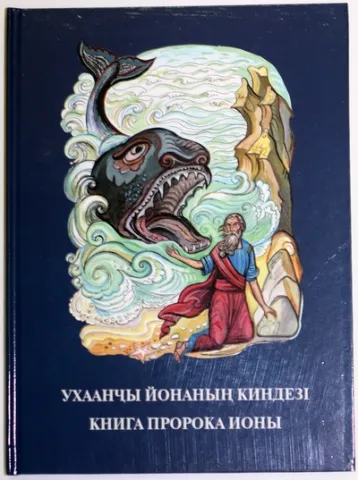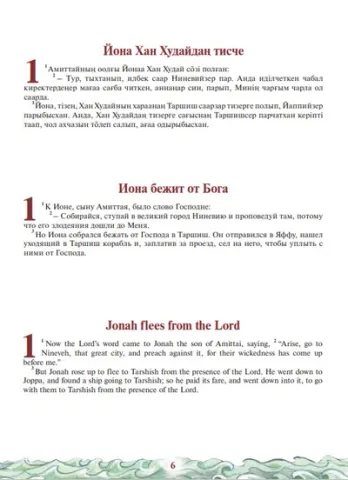A new Scripture portion in the Khakas language - the book of the prophet Jonah - has arrived in Abakan, the capital city of Khakassia in south Siberia.
According to the 2010 census, the Khakas language is spoken by 42,604 people. It belongs to the south Siberian group of the Turkic languages and is spoken mainly in the Republic of Khakassia and partially in Krasnoyarsk Region and Tuva.
After the release of the New Testament in Khakas in 2009 and its reprint with a parallel Russian translation in 2011, the Khakas project had a rather long break while preparing for the next stage - the translation of the Old Testament. Currently, Genesis, Exodus, Psalms, and the books of Habakkuk and Malachi are in the works.
The book of Jonah is the first Scripture portion from the Old Testament published by IBT in Khakas. The edition came out in a large hardcover format, with colorful illustrations by Irina Pavlishina that were previously used in IBT’s publications of Jonah in the Chukchi, Kalmyk, Karelian, Evenki and Abaza languages and were well received by readers from different cultural backgrounds.
A special feature of this edition is that the Khakas translation is accompanied by Russian and English parallel texts. Including different translations should contribute to a wider use of the book in a multilingual environment, help in learning these languages, and most importantly, emphasize the main idea of the book – that the God of the Jewish people is not limited by geography or ethnicity, but cares for all people.
The text was translated and edited by translator Galina Litvinenko, philological editor Tatyana Borgoyakova, exegetical adviser and comprehension tester Michal Domagala (SIL International), and consultant Vitaly Voinov. The translation has been field-tested with native speakers of Khakas.
This book, as well as the previous editions in Khakas, can be read and downloaded in the electronic editions section of the IBT website. A print run of 500 copies will be donated to the Abakan Diocese, Khakas churches, and educational institutions, as well as to the National Library, which will distribute the books among 210 municipal libraries of the republic.


